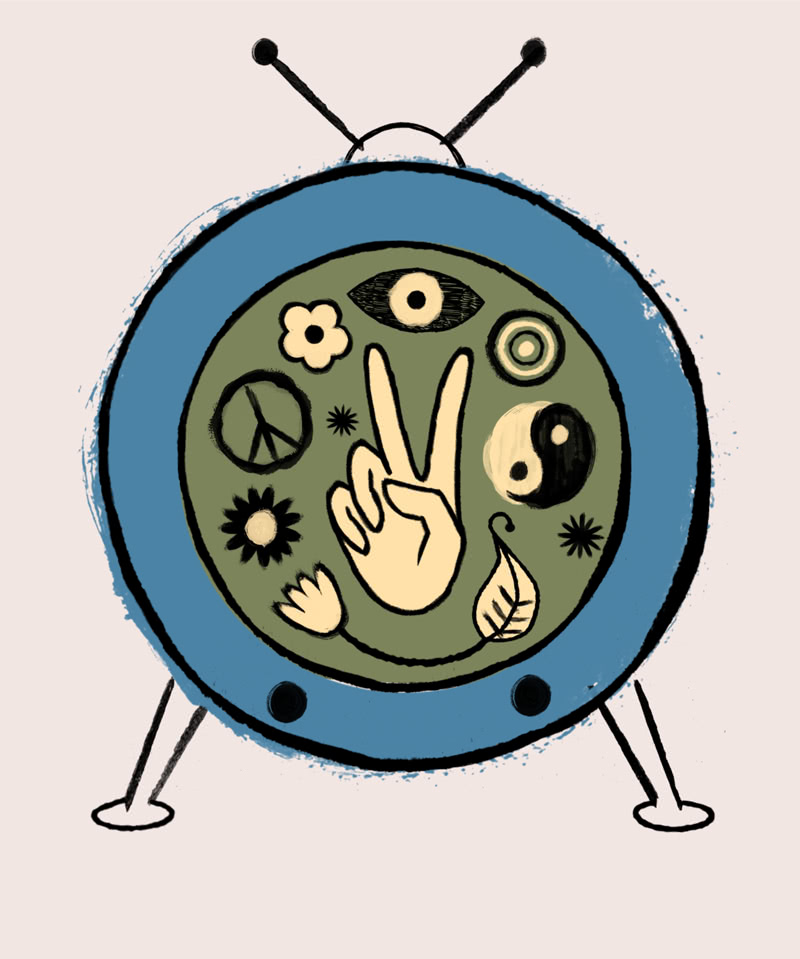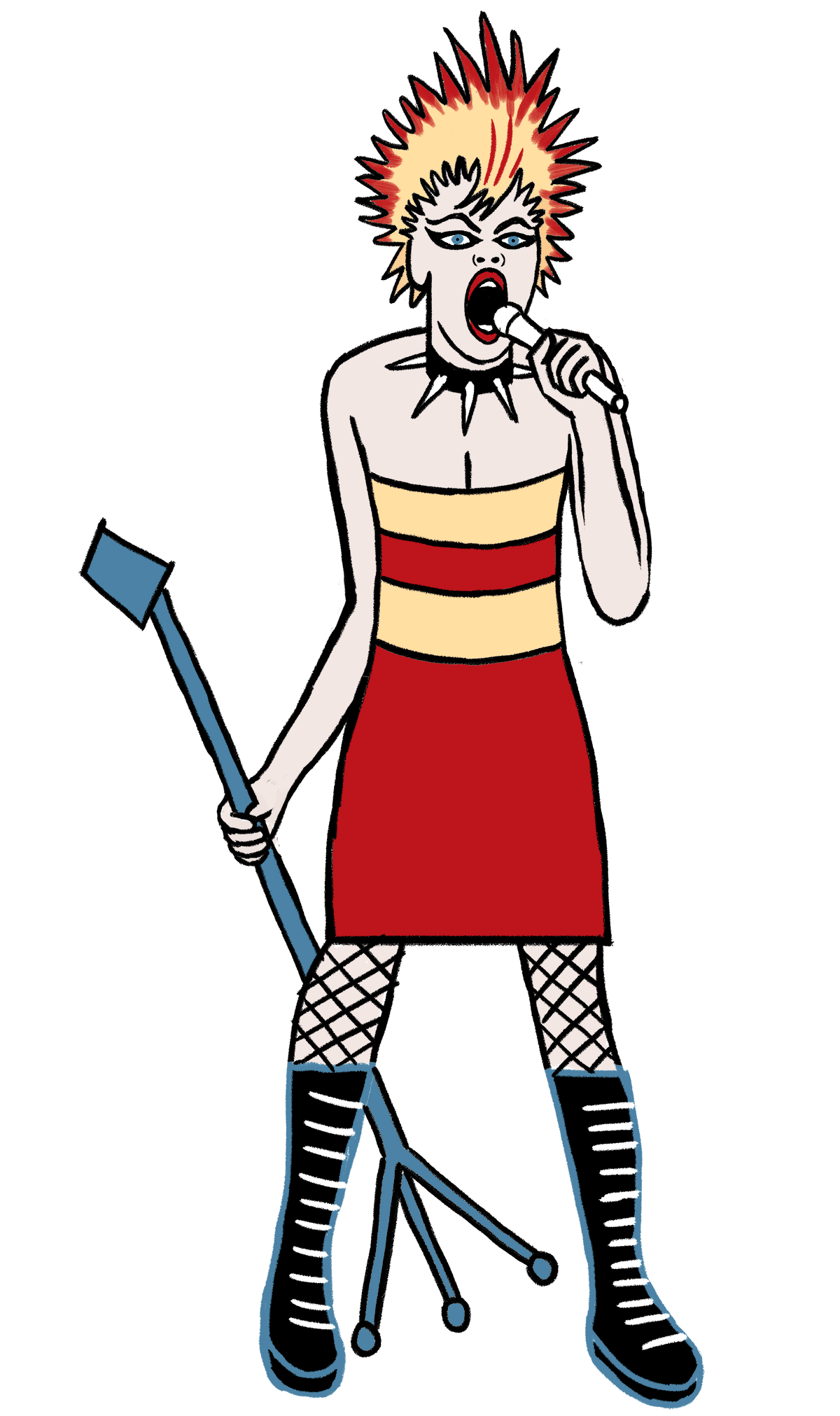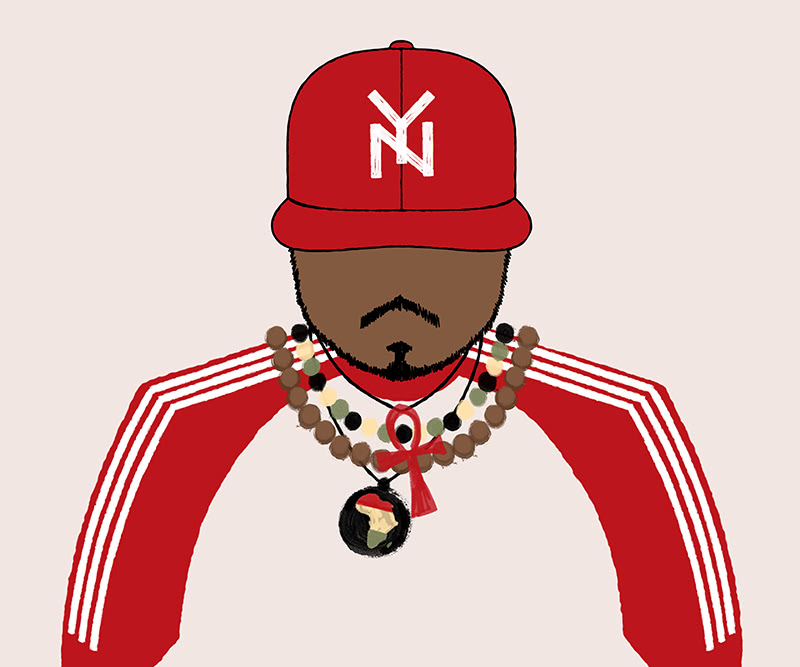
Rolling Stone and Young Henrys have come together to celebrate music that's made a difference.
This bold Hazy Pale was made with Golden Promise, malted and rolled oats and stacks of hops for stone fruit aroma and flavour.
This beer salutes musicians across the ages who use their art to protest injustice, heal divides and bring people together.
BEER AND MUSIC FOR THE PEOPLE

THE 60's
At the dawn of the 60s, the sounds of revolution were in the air. Electric guitars, mop tops, free love, and a burgeoning fascination with psychedelics all infiltrated society. Norms were upheaved as the rigidity of gender roles began to be questioned. It all culminated at Woodstock, as bare-footed young people came together under the banner of peace and social change in a counterculture event that defined a generation.
Senior Rolling Stone US editor David Fricke was at Woodstock when the action all played out. Funnily enough, his standout memory is not the scorching guitar solo Hendrix played over “The Star-Spangled Banner”. Instead, it’s a story of spaghetti and hot dogs.
Woodstock was an “exhilarating series of minor epiphanies," recalls Fricke. "One of those moments came for me on Saturday morning when a wet, dishevelled freak came up to our campsite and asked my friend Wayne and me if we could spare a plateful of our undercooked spaghetti and hot dogs. Sure, man, chow down. In turn, he offered us a tab of what he swore was top-drawer acid. We politely declined."
In the 60s, a generation with brand new ideals came of age. Things were about to change forevermore.

THE 70's
As the hippies faded from view, a new sound emerged: the white-hot, unhinged noise of punk. Teeming with raw aggression and break-neck guitar riffs, punk became the definitive anti-establishment soundtrack pioneered by youth in revolt.
The 'peace and love' philosophy of the 60s had transformed into something new: the confrontational music of the anti-war movement. No longer was John Lenon a fresh-faced Beatle singing about the saccharine joys of holding your sweetheart's hand. Instead, he was a long-haired antihero. A beatnik troubadour. A political force to be reckoned with. "I wanted to put what I felt about revolution [into music]," said Lennon in an infamous 1970 Rolling Stone cover story. "I thought it was time we fuckin’ spoke about it."
Meanwhile, the sounds of disco were born inside the sweaty clubs of NYC; a scene that originated from black and queer communities as a safehaven from social turmoil. The Village People turned masculine stereotypes into fodder for cheeky, subversive disco classics before Donna Summer released the iconic “I Feel Love”––a track that would go on to become an LGBTIQ+ pride anthem. In Greenwich Village, the Stone Wall Riots marked a turning point for the queer community as demonstrations spilt out into the streets with a seminal march for equality against police oppression.
THE 80's
Big hair, synths, and drum machines. The sounds of the 80s were inspired by the future; a synergy between human and machine. From power ballads to finger-tapped guitar solos, yacht rock to slow-burning R&B—music became increasingly diverse. In a stunning show of solidarity, Queen put on a career-defining performance at Live Aid. The festival pooled millions of dollars to combat famine in Ethiopia.
Meanwhile, a modern punk resurgence was underway, this time with a pointed focus: political and often controversial lyrics that attacked the establishment, sexism, capitalism, racism, and colonialism.
One band that spearheaded this resurgence were The Dead Kennedys. The band’s iconic track “Nazi Punks Fuck Off” has gone on to become an anti-fascist anthem, as relevant today as it was upon its release.
“The common denominator of most of us is we were anti-corporation and anti-corporate culture, especially the way it was polluting and dumbing down our music,” recalls former Dead Kennedys frontman Jello Biafra.
Whether it was the sounds of anguished punk or disco-soaked backbeats, the sentiment of the 70s still rings true today.

THE 90's
The 90s changed everything. The birth of hip hop set the West Coast and East Coast alight––becoming the poetry of the streets and a mouthpiece for oppressed youth.
A movement that centred the Black experience took hold and spread across the globe as rappers including Tupac, Lil Kim, Nas, and NWA became household names. Together, they bring issues of Black liberation, police brutality, the prison industrial complex and more to the national conversation––preaching unity over hate and equality over division.
The Rodney King and Amadou Diallo protests became a catalyst for musical inspiration as hip hop became increasingly political. Most notably, NWA’s “Fuck the Police” became an anthem against police brutality. It still is today.
“Why did we make those kind of records? We were living in the middle of dope dealing, gangbanging, police brutality, fucking Reaganomics, and there was nowhere to escape,” said NWA member Ice Cube to Rolling Stone.
Ultimately, the birth of hip hop offered hope. Black culture had broken into the mainstream. Through music, key issues of the time––all of which persist today––were talked about in a way that was unheard of before rap. The legacy of this era is undeniable and still felt on the airwaves––and in the streets––today.
THE 2000's
In the 2000s, indie rock and emo dominated the charts as skinny-jeaned rock revivalists took over stages across the globe. Millennials grew up to the sounds of Tegan and Sara, The Strokes, Arctic Monkeys, and The Yeah Yeah Yeahs. Armed with Tumblr, a Motorola flip phone and the birth of social media––young people became adept at using the internet to discover new music, alternative communities and non-conformist subcultures.
Meanwhile, the US and its allies were dragged into a new war. Consequently, America's engagement in Afghanistan became the most protracted war in American history. At the time, anti-Bush and anti-war pop punk exploded through the Walkmans of kids across the globe. Green Day became modern-day heroes, offering polished anti-establishment tracks for the 21st century.
The Chicks (formerly known as The Dixie Chicks) took a stand at a now-iconic concert at London’s Shepherd’s Bush Empire Theatre. Their anti-war remarks led to their albums being burned in American streets and blacklisted from country radio––but cemented their status as contemporary music revolutionaries.
The 2000s marked a changing of the guard. New musical icons emerged, offering new causes and flags for a new generation of fans to rally around.
THE 2010's
In the 2010s, the digital revolution had well and truly taken over. The world’s entire music library became available inside a smartphone. With the advancement of technology, anyone with a laptop and a guitar became able to record a masterpiece in their bedroom and share it with the world. Spurred on by increased connectivity, new talent was able to break through from all corners of the globe––with artists proudly wearing their independence as a badge of honour.
Notably, the Black Lives Matter movement rises to prominence. It’s spearheaded by Kendrick Lamar’s anti-racist anthem “Alright”. Lamar’s masterpiece album To Pimp a Butterfly becomes a modern classic. Global protests begin to take place, as a new coalition of young people––more diverse than ever––demand equality for all. The galvanising sounds of Beyonce, Jay-Z, and Run the Jewels offer a modern soundtrack for protests, inspired by the massive social movements that have come before.
Meanwhile, the #MeToo movement rattles hierarchies to their core, changing the entertainment and music industry landscape forever. Acts including Fiona Apple, Stella Donnelly, Kesha and Lady Gaga all release tracks that rise to meet the moment and encourage women across the globe to share their story and have their voices heard.
THE 2020's
As we enter the 2020s, we see the death of the genre. Music is no longer boxed into a time, place or category but rather treated as something fluid. Black Lives Matter comes to the forefront of culture, as a global movement takes to the streets to demand justice. As they march, we hear diverse sounds––sounds as diverse as those demanding change. The work isn’t done yet, but progress is being made as the next generation of changemakers arise.
In Australia, the Change the Date movement and the ongoing push for Indigenous Australian equality has become a key issue of the moment. Already, musicians have banded together to create music to inspire change, carrying on the noble tradition that’s come before them.
The story of the 2020s is being written as we speak. Its future is yet to be written. However, we know that music will do what it has done for generations––to act as The Unifier we need.
Protest Music Through the Ages
Protest music is as relevant today as it was in the '60s. We asked some of our favourite artists to share the tracks that mean the most to them to celebrate the release of The Unifier.
This project champions the music and artists who have helped to create positive change throughout generations. The artists and musicians who have been involved with The Unifier identified three amazing causes fighting the good fight today, which we would like to highlight. Please find out more below:
Support Act is the Music Industry’s charity. We provide crisis relief to artists, crew and music workers across all genres who are unable to work due to illness, injury, a mental health issue or some other crisis, including the impact of COVID-19 on live music.
The Dylan Alcott Foundation hosts AbilityFest, Australia's foremost music festival focused on using music as an inclusive platform to normalise disability. The Dylan Alcott Foundation's mission is helping young Australians with disabilities overcome the barriers of entry to sport and education by providing fundraising for grants, scholarships and mentoring.
Autism Camp Australia is doing some amazing work in the community. Autism is a neurological difference which affects many Australians. ACA’s experiential learning camp program is tailor made for kids with 'auty' brains, and their families. It's a stepping-stone to mainstream inclusive social and community participation.






































